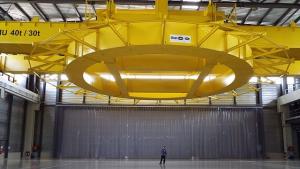What’s New
2 June 2014
ITER news digest for the period of 26 May 2014 to 2 June 2014.

BBC World Service Discovery broadcasts a documentary on ITER


Désolé, cette page n'existe pas en français.

